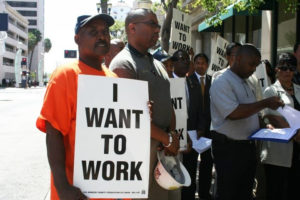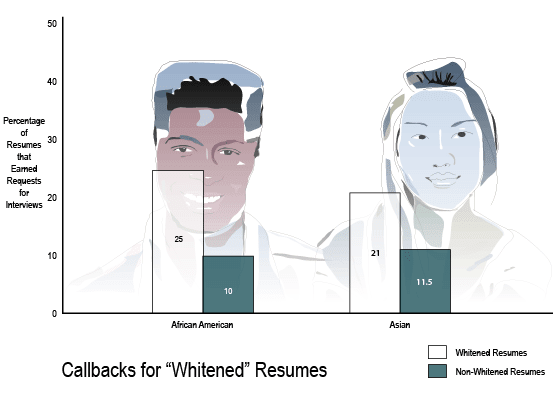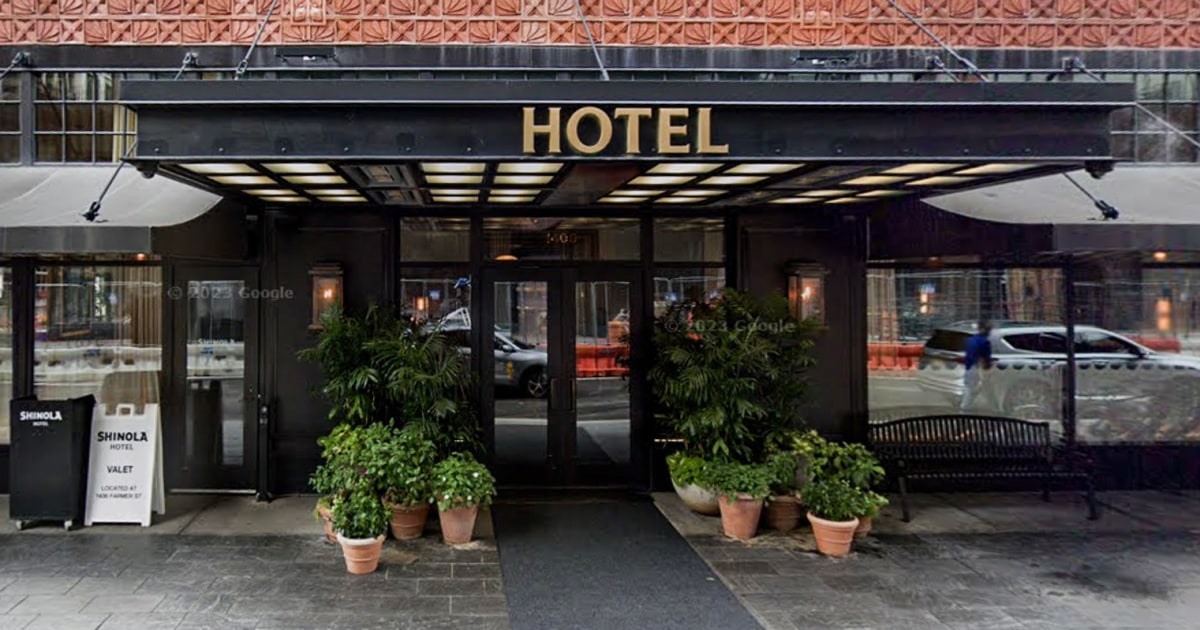
www.library.hbs.edu
Minorities Who 'Whiten' Job Resumes Get More Interviews
African American and Asian job applicants who mask their race on resumes seem to have better success getting job interviews, according to research by
Katherine DeCelles and colleagues.
By Dina Gerdeman on May 17, 2017
- Harvard Business School
- Minorities Who 'Whiten' Job Resumes Get More Interviews
Minority job applicants are “whitening” their resumes by deleting references to their race with the hope of boosting their shot at jobs, and research shows the strategy is paying off.
In fact, companies are more than twice as likely to call minority applicants for interviews if they submit whitened resumes than candidates who reveal their race—and this discriminatory practice is just as strong for businesses that claim to value diversity as those that don’t.
These research findings should provide a startling wakeup call for business executives: A bias against minorities runs rampant through the resume screening process at companies throughout the United States, says Katherine A. DeCelles, the James M. Collins Visiting Associate Professor of Business Administration at Harvard Business School.
“Discrimination still exists in the workplace,” DeCelles says. “Organizations now have an opportunity to recognize this issue as a pinch point, so they can do something about it.”
DeCelles co-authored a September 2016 article about the two-year study in
Administrative Science Quarterly called
Whitened Resumes: Race and Self-Presentation in the Labor Market with Sonia K. Kang, assistant professor of organizational behavior and human resource management at the University of Toronto Mississauga; András Tilcsik, assistant professor of strategic management at the University of Toronto; and Sora Jun, a doctoral candidate at Stanford University.
Discrimination still exists in the workplace. Organizations now have an opportunity to recognize this issue as a pinch point, so they can do something about it.
In one study, the researchers created resumes for black and Asian applicants and sent them out for 1,600 entry-level jobs posted on job search websites in 16 metropolitan sections of the United States. Some of the resumes included information that clearly pointed out the applicants’ minority status, while others were whitened, or scrubbed of racial clues. The researchers then created email accounts and phone numbers for the applicants and observed how many were invited for interviews.
'Whitened' resumes produce more job call-backs for African Americans
Blacks get more job interview callbacks when they “whiten” their resumes. Graphic by Blair Storie-Johnson (
Source: “Whitened Resumes: Race and Self-Presentation in the Labor Market”)
Employer callbacks for resumes that were whitened fared much better in the application pile than those that included ethnic information, even though the qualifications listed were identical. Twenty-five percent of black candidates received callbacks from their whitened resumes, while only 10 percent got calls when they left ethnic details intact. Among Asians, 21 percent got calls if they used whitened resumes, whereas only 11.5 percent heard back if they sent resumes with racial references.
‘Pro-diversity’ employers discriminate, too
What’s worse for minority applicants: When an employer says it values diversity in its job posting by including words like “equal opportunity employer” or “minorities are strongly encouraged to apply,” many minority applicants get the false impression that it’s safe to reveal their race on their resumes—only to be rejected later.
In one study to test whether minorities whiten less often when they apply for jobs with employers that seem diversity-friendly, the researchers asked some participants to craft resumes for jobs that included pro-diversity statements and others to write resumes for jobs that didn’t mention diversity.
They found minorities were half as likely to whiten their resumes when applying for jobs with employers who said they care about diversity. One black student explained in an interview that with each resume she sent out, she weighed whether to include her involvement in a black student organization: “If the employer is known for like trying to employ more people of color and having like a diversity outreach program, then I would include it because in that sense they’re trying to broaden their employees, but if they’re not actively trying to reach out to other people of other races, then no, I wouldn’t include it.”
But these applicants who let their guard down about their race ended up inadvertently hurting their chances of being considered: Employers claiming to be pro-diversity discriminated against resumes with racial references just as much as employers who didn’t mention diversity at all in their job ads.
“This is a major point of our research—that you are at an even greater risk for discrimination when applying with a pro-diversity employer because you’re being more transparent,” DeCelles says. “Those companies have the same rate of discrimination, which makes you more vulnerable when you expose yourself to those companies.”
DeCelles sees an obvious disconnect between the companies’ pro-diversity messages and the actual acceptance of diverse applicants, yet she doesn’t believe employers are using these messages as a way to trap and weed out minorities that do apply.
“I don’t think it’s intended to be a setup,” she says. “These organizations are not necessarily all talk when they say they’re pro-diversity. Maybe the diversity values are there, but they just haven’t been translated from the person who writes the job ad to the person who is screening resumes.”
But clearly the findings reinforce an assumption many minorities already have: that the resume screening game is stacked against them and that they need to hide their race to level the playing field.
The researchers interviewed 59 Asian and African American students between the ages of 18 and 25 who were seeking jobs and internships. More than a third, 36 percent, said they whiten their resumes, and two-thirds knew friends or family members who had done so, all because they were afraid their resumes could be unfairly tossed aside if their race became obvious.
“The primary concern is that were trying to avoid a negative group-based stereotype that they felt could occur in a quick scan of a resume,” DeCelles says. “They whitened their resumes because they wanted to appear more mainstream.”
Different minority groups use different whitening techniques
Asian applicants often changed foreign-sounding names to something American-sounding—like substituting “Luke” for “Lei”—and they also “Americanized” their interests by adding outdoorsy activities like hiking, snowboarding, and kayaking that are common in white western culture.
One Asian applicant said she put her “very Chinese-sounding” name on her resume in her freshman year, but only got noticed after subbing in her American nickname later: “Before I changed it, I didn’t really get any interviews, but after that I got interviews,” she said.
Some Asians covered up their race because they worried employers might be concerned about a possible language barrier. “You can’t prove your English is good in a resume scan, but you can if you can get to the interview,” DeCelles says.
Meanwhile, African Americans toned down mentions of race from black organizations they belonged to, such as dropping the word “black” from a membership in a professional society for black engineers. Others omitted impressive achievements altogether, including one black college senior who nixed a prestigious scholarship from his resume because he feared it would reveal his race.
“Some applicants were willing to lose what could be seen as valuable pieces of human capital because they were more worried about giving away their race,” DeCelles says.
Some black students bleached out this information because they were concerned they might come across as politically radical or tied to racially controversial causes in a way that could turn off an employer.
“People … want to have like an awesome black worker but they want one who they feel like fits within a certain box and like very much will conform and like lay low and just kind of do what’s expected of them, and they’re not necessarily looking for the outspoken like political radical person,” a black college senior said. “I feel like race is just one of the many aspects where you try to just like buff the surface smooth … and pretend like there’s nothing sticking out.”
I wouldn’t consider whitening my resume because if they don’t accept my racial identity, I don’t see how I would fit in that job
Other interviewed students were staunchly opposed to resume whitening. Some even said they purposely left in racial references as a way of sniffing out employers that might not welcome minorities. One student said, “If blackness put a shadow over all (my resume), then it probably isn’t the job I want to be in,” while another said, “I wouldn’t consider whitening my resume because if they don’t accept my racial identity, I don’t see how I would fit in that job.”
How to address discriminatory hiring practices
It’s time for employers to acknowledge that bias is hardwired into the hiring system and that prejudice is clouding the screening of qualified applicants, says DeCelles, whose research focuses on the intersection of organizational behavior and criminology.
Business leaders should start by taking a closer look at their resume screening processes. Blind recruitment is one possible solution, where information about race, age, gender, or social class are removed from resumes before hiring managers see them.
Companies can also perform regular checks for discrimination in the screening process, for example by measuring how many minorities applied for a position and comparing that with the percentage of those applicants who made the first cut.
“Organizations can now see very clearly that this is why they are not meeting their diversity goals,” DeCelles says. “They can’t just put a message on recruitment ads and be done. They need to follow through with a clear structure and staff training. They need to make goals and then continually evaluate the outcome in order to meet those goals.”
The bottom line for business leaders who are hiring, she says: “Once you receive applications, you need to make sure they are evaluated fairly.”
 . So they shouldnt be punished for sins of the father.
. So they shouldnt be punished for sins of the father.















